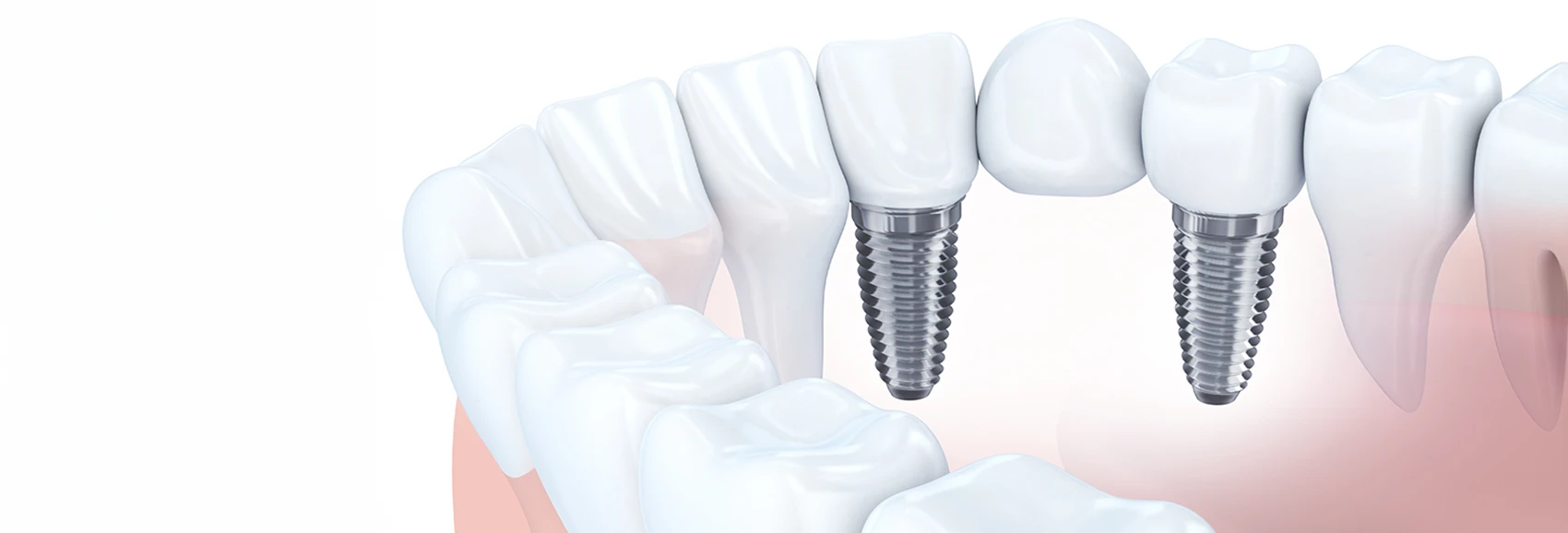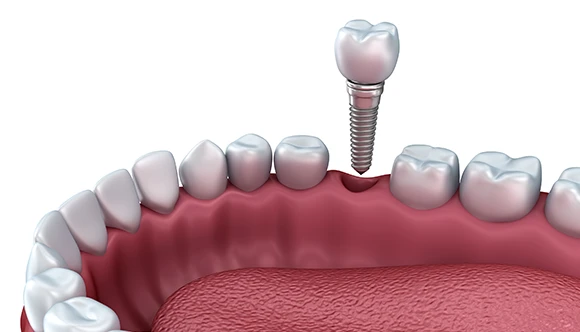
The goal of dental implants is to replace lost teeth with long-lasting, aesthetically pleasing prosthesis through a multi-step process. The three phases of dental implants comprise a number of meticulously organized and carried out operations using man-made substitutes. First, a titanium implant is surgically inserted into the jawbone to replicate the function of a natural tooth root during the implant insertion stage. Through a process known as osseointegration, the implant gradually fuses with the bone to provide a strong base for the replacement tooth. Implant implantation, abutment implantation, and crown attachment are the three primary phases of dental implant therapy.
A dental implant is a sophisticated solution for replacing missing teeth. It consists of a titanium post, resembling a small screw, which is surgically implanted into the jawbone beneath the gum line. This post serves as a sturdy foundation for a replacement tooth or bridge. Unlike traditional dentures or bridges, dental implants are designed to look, feel, and function like natural teeth, offering a permanent and durable solution for tooth loss.

The first stage of the dental implant process involves surgically placing the implant into the jawbone. This procedure is typically performed under local anesthesia to ensure patient comfort. The oral surgeon or dentist makes an incision in the gum tissue to expose the jawbone and then drills a small hole where the implant will be placed. The implant is carefully inserted into the jawbone, and the gum tissue is stitched back into place. Over time, the bone will gradually fuse with the implant through a process called osseointegration, providing a stable and long-lasting foundation for the replacement tooth.
Once the implant has fully integrated with the jawbone, the next step is to attach the abutment. The abutment is a small connector piece that is secured onto the top of the implant. It protrudes above the gum line and serves as the attachment point for the prosthetic tooth or crown. The abutment is crucial for providing stability and support to the replacement tooth and ensuring a secure fit. In some cases, the abutment may be attached during the initial implant surgery, while in others, it may be placed in a separate procedure after the implant has healed.
In the final stage of the dental implant process, a custom-made prosthetic tooth or crown is attached to the abutment. The prosthetic tooth is crafted to match the color, size, and shape of the surrounding natural teeth, ensuring a seamless and aesthetic result. Whether it's a single tooth replacement or a full set of teeth, the prosthetic tooth is designed to restore the patient's smile and function. Once the prosthetic tooth is securely in place, the dental implant restoration is complete, and the patient can enjoy the benefits of a beautiful and fully functional smile.
The timeline for getting dental implants can vary depending on individual factors such as the number of implants needed, the patient's overall oral health, and the specific treatment plan. In general, the entire process can take several months to complete. The surgery to place the implant typically takes about an hour per implant, but the overall treatment timeline includes additional stages such as healing and integration periods. It's essential for patients to consult with their dentist or oral surgeon to determine the most appropriate treatment plan and timeline for their specific needs.
After the dental implant surgery, patients can expect some degree of discomfort, swelling, or bruising in the days following the procedure. This is normal and can be managed with pain medication and ice packs. It's essential for patients to follow post-operative care instructions provided by their dentist to promote proper healing and minimize the risk of complications. During the recovery process, it's crucial to maintain good oral hygiene practices and avoid activities that could disrupt the healing process, such as smoking or consuming hard or sticky foods. Most patients can return to their normal activities within a few days to a week after the surgery, but it may take several months for the implant to fully integrate with the jawbone.
Taking care of dental implants is essential for ensuring their long-term success and durability. After the surgery, patients should follow their dentist's recommendations for oral hygiene, which may include gentle brushing and flossing around the implant site, using antimicrobial mouthwash, and attending regular dental check-ups. It's also important to avoid habits that could damage the implants, such as chewing hard objects or grinding teeth. With proper care and maintenance, dental implants can last a lifetime, providing patients with a confident smile and restored oral function.
Are you ready to restore your smile with high-quality dental implants? Look no further than ZircTeeth. Our team of experienced dental professionals specializes in providing personalized implant solutions tailored to your unique needs. Whether you're missing a single tooth or require a full mouth restoration, we're here to help you achieve the smile of your dreams. Contact us today to schedule a consultation and take the first step towards a confident, beautiful smile.
